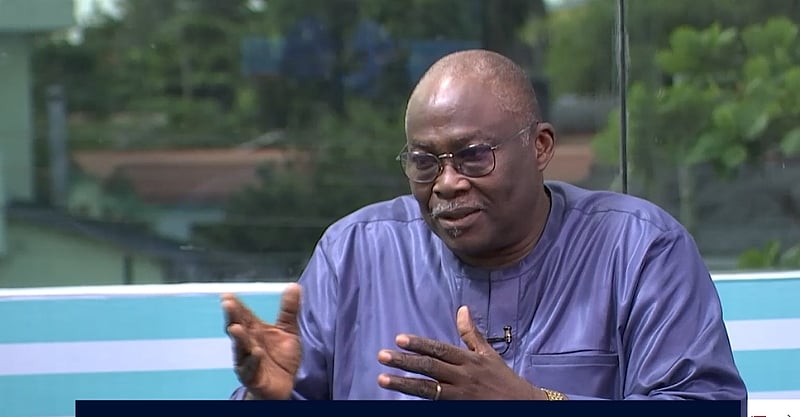Ekwow Spio-Garbrah, the former Minister of Trade and Industry in Ghana, has voiced significant concerns regarding the New Patriotic Party’s (NPP) capacity to safeguard the public finances if they are re-elected in the upcoming 2024 elections. His criticisms have been spurred by recent comments made by Dr. Mahamudu Bawumia, the NPP’s flagbearer, during a youth engagement event where he requested the public’s trust in his ability to manage the nation’s finances. Spio-Garbrah’s remarks, made in an interview on Channel One TV, highlight his perspective that the NPP has mismanaged state resources and has engaged in what he terms “looting” of public funds. This statement reflects his broader concerns about accountability in governance under the NPP.
In his critique, Spio-Garbrah pointedly accused the NPP administration of failing to protect the public purse as they had pledged to do. He emphasized the importance of governance characterized by transparency and accountability, ideals that he associates with the National Democratic Congress (NDC). He urged Ghanaians to consider a change in leadership, advocating for a shift away from the NPP, which he believes is necessary for restoring responsible management of the economy and ensuring stability. His comments resonate with voters seeking a trustworthy governmental approach that prioritizes the welfare of the populace over personal or political interests.
Spio-Garbrah further scrutinized Dr. Bawumia’s suitability for presidency, suggesting that Bawumia should reassess his ambitions given the current economic climate. He referenced the troubling economic indicators, particularly focusing on Ghana’s exchange rate, as a reflection of Bawumia’s inadequate leadership. As the current Vice President, Bawumia has repeatedly claimed that weak economic fundamentals can lead to unfavorable exchange rates, a point that Spio-Garbrah argues has been consistently proven true under Bawumia’s watch. This rhetoric intends to challenge Bawumia’s credibility as a potential leader and to highlight the repercussions of the NPP’s economic policies.
The former minister’s critique extends beyond mere rhetoric; he positions the NDC as a party that would prioritize the proper management of public funds and uphold the integrity of fiscal policies. By contrasting the NDC’s perceived commitment to good governance with the NPP’s alleged mismanagement, Spio-Garbrah aims to convince voters that electing the NDC would culminate in an administration focused on rebuilding the citizenry’s trust in government institutions. This aligns with the broader narrative in Ghanaian politics, wherein issues of accountability and resource management remain pivotal concerns for voters.
Spio-Garbrah’s challenge to Bawumia is indicative of the broader political tensions leading up to the elections, as he calls for a deeper discussion of economic management within the NPP campaign. He urges Bawumia to engage more directly with pressing economic issues rather than simply asking for public confidence. This criticism underscores the urgency for the NPP to address economic instability while campaigning for re-election amidst a backdrop of discontent among certain segments of the population regarding their economic management.
In conclusion, Ekwow Spio-Garbrah’s assessment presents a significant challenge to the NPP’s narrative ahead of the 2024 elections. His arguments, asserting that the NPP has not upheld its promises regarding the protection of the public purse, encourage Ghanaians to reflect on the impact of current leadership on their economic reality. By positioning the NDC as a credible alternative, he not only questions the NPP’s record but also calls for a reevaluation of what it means to govern effectively in Ghana. In an election characterized by economic challenges, the discourse surrounding accountability and management of public funds will undoubtedly play a critical role in shaping electoral outcomes.


